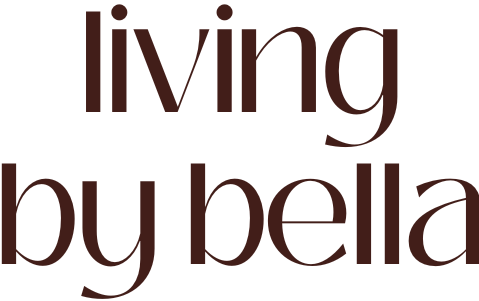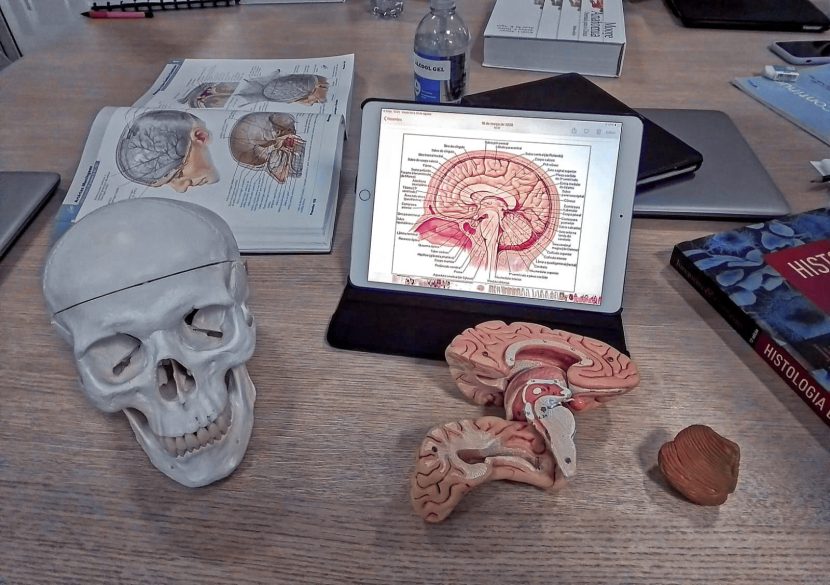Meet Sanjita, a high school senior from Arizona who’s delving into the world of STEM, alongside pursuing her passions in baking and crocheting. But it’s Sanjita’s journey into the world of computer science that truly sets her apart: She embarked on this path during her eighth-grade year, with a fascination for robotics and her high school experience in Kode With Klossy. Fast forward to today, and she’s an integral part of SereneMind’s executive team, a unique organization at the intersection of STEM and mental health, on a mission to empower more women to excel in STEM fields.
Sanjita’s inspiring story underscores the pivotal role played by programs like Kode With Klossy and Girls Who Code in igniting her passion for coding. She acknowledges that it’s essential to encourage others in STEM and to tackle mental health issues head-on, rather than brushing them aside. I talked to Sanjita to discuss her takes on mental health, women in STEM, and how you can join the SereneMind team.
Bella: Ok, so tell me a little bit about yourself. Obviously, you’re passionate about mental health and STEM, which are some of my passions too.
Sanjita: Ok, great! My name is Sanjita. It’s really nice to meet you. I am currently a high school senior living in Arizona, and it’s so hot here. I love to bake; i’m all about the fall stuff happening right now. Obviously, I love to code, and one of my other passions is crocheting. I’ve made a crochet blanket, and I’m trying to get into crochet animals. Those are my basic passions right now. Would you like to hear how I got into computer science a little?
Bella: For sure! Obviously, we both did Kode With Klossy.
Sanjita: Freshman year, I heard of Kode With Klossy. They didn’t have an in-person program near me, unfortunately, which sucks, but it was such a fun time. Kode With Klossy helped me get into computer science just a little bit more. Especially because I was first placed in the mobile development camp, and when I made my own app, I thought, ‘This is actually fun.’ Later, when I joined Girls Who Code, the community was so nice. We were struggling together, but we learned Python, HTML, CSS, and more.
After that, in my junior year, after all the chaos, I joined Geneva (the Kode With Klossy Alumni Community), and I saw a post from an organization saying, ‘Hey, Executive Members Needed.’ I thought, ‘Okay, I’ll try it out. It’s my senior year, and it would be fun to share my knowledge.’ I love this organization I’m part of because the founder is so sweet. We’ve been able to teach many young girls how to code, and Kode with Klossy inspired me to want to teach other girls how to code.
Bella: First of all, I love baking too. I’m so happy to find someone who loves to bake. I swear, my brother makes fun of me and says I can’t bake or cook, but I make some good brownies.
So, you said you got interested in joining. What in particular made you passionate about STEM or mental health? I know we talked about Kode With Klossy, but did anything else inspire you or get you involved?
Sanjita: Kode With Klossy definitely inspired me mainly, but in my first robotics camp, there were only a few girls, and when I joined Kode With Klossy, it made me realize that we needed more girls in coding. My sophomore year of high school, my computer science teacher was the number one reason I wanted to continue computer science in college. She was so sweet and always encouraging, even when I struggled with new programming languages. Making websites became one of my favorite things to do. My computer science teacher really persuaded me to pursue computer science in college.
Bella: I started coding when I was 9 and made my first website when I was 10. I lost the passion for it until Kode With Klossy, and I was like, ‘Oh, let me get back into it.’ I’m really glad it’s getting more popular among women.
Okay, so I know this organization blends STEM and mental health. How do you see that happening more in the future?
Sanjita: Especially with coding, it can take a toll on mental health. When you have all these subjects in school, it can get stressful, especially during finals. I saw my friends who were in my computer science classes, and it made me realize that we needed to focus on mental health in the STEM industry. For doctorates and medicine, where there’s so much schooling and work involved, it can be exhausting. What I love about the organization is that we say, ‘What you’re doing is awesome,’ and we address people’s mental health, saying, ‘What you’re feeling is normal, and you can find a way to get through it.’
Bella: Speaking of mental health, what’s the best mental health advice you’ve personally received?
Sanjita: My number one advice is to not compare yourself to anybody. I used to do this so many times, especially in high school. You see your friends achieving things, and you feel happy for them, but you also wonder what you’re doing with your life. Especially on social media, when you see people posting their achievements, you feel happy but also think, ‘Why can’t I do that? They’re so much better than me.’ So, I think my best advice is to stop comparing yourself because you never know what the other person is going through.
Bella: Yeah, I think especially in high school, the struggles of comparison are prevalent. It’s a hot topic, and I’m glad you touched on that. So, what is one misconception about mental health that you get frustrated with or don’t like?
Sanjita: I think one common misconception is when someone says, ‘It’s okay; they’ll get over it.’ If a friend is going through a tough time and people dismiss it, thinking they’ll get over it, that’s frustrating. There are often other circumstances a person is going through, like issues at home or school. You can’t just overlook it and say, ‘They’ll be fine.’
Bella: Okay, thank you. I noticed your magazine, and I loved it. I thought it was so cute. There was an article about being addicted to phones or technology. How do you feel that technology has impacted Gen Z, especially when it comes to mental health?
Sanjita: I see both sides of it. While technology can make people sad when they see posts with seemingly perfect lives, it also has a positive side. Some influencers show the reality of their lives, which helps others relate. There are posts like, ‘Here’s what I do when I’m feeling sad,’ and it makes you feel like what you’re feeling is normal. However, I do think that some platforms like TikTok and Instagram have a big toll on mental health.
Bella: We recently received an email about my university banning Tiktok on their networks, which I found quite surprising. It led to a discussion between my friend and me about whether this might be a signal that we all need a break from social media due to its impact on mental health. But, as you mentioned, there are also positive aspects to it.
Now, what is SereneMind’s mission for those who may not be familiar?
Sanjita: Our primary goal is to help those in STEM or in the STEM industry, and we have ebooks to support people in realizing they’re not alone. But our secondary goal is to increase the number of women in the STEM industry. I believe we initiated this in May or June – June is when I joined – and in June, we launched a mentor/mentee program that I loved so much. We met many girls, and I was mentoring girls from Algeria. I remember thinking I didn’t even know I could be friends with someone from Algeria, and also girls from Morocco and Venezuela. What I love most about the mentorship program is that you help teach code to different girls living there, and I think it’s more enjoyable that way, plus you can make new friends along the way. I distinctly recall thinking that this was one of the things I loved most about SereneMind.
Bella: I’m glad you have that, a mentorship program sounds so cool.
So, what’s your favorite aspect of being on the team? I know you hold an executive position on the leaderboard. What’s your favorite part about it?
Sanjita: I think my favorite part is that when I have a specific task, such as organizing a workshop, I really appreciate how much the team members help, especially the girl who founded it. She’s so nice, and it’s challenging to organize this whole thing by yourself. But if you have a question, someone will quickly provide assistance. Especially during school, when you don’t have as much time to handle everything, they help you create more time for your tasks.
Bella: So as an executive team member, what’s your daily or weekly to-do list? What do you normally do?
Sanjita: About two weeks ago, we started working on a virtual webinar we’re hosting, and we have to spread the word a little to get people to join our webinar session. What I would do is go on google forms and see if anyone has joined or if we’ve had new members, and we’d go on canva and make some posts about it to bring more engagement. In July, we were working on an ebook – a children’s mental health yearbook – and I assisted on the writing and making sure the illustrator and writers completed everything needed. Now, my daily tasks just consist of working on our upcoming webinar.
Bella: Where do you see SereneMind in 1-5 years? What is the biggest goal right now for this organization?
Sanjita: Our biggest goal so far is increasing our coding workshop. When we first started we didn’t have as many mentees and mentors, but once we started getting more people on our executive team, they helped spread the word even more. Luckily our team has grown a lot more, especially a lot more mentees and mentors joining us. I really hope we get more people to join and engage with the program. We definitely want to help teach more girls how to code.







